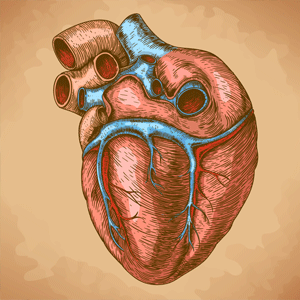
If the results of the lab study can be replicated in vivo, the scientists suggest that “dietary hibiscus anthocyanin supplements might be considered as potential protective atherosclerosis (hardening or furring of blood vessels) agents against chronic cardiovascular diseases”.
Hibiscus extract, already used to give colour and flavour to beverages, contains many of the same antioxidant compounds as red wine, including flavonoids, polyphenols and anthocyanins, shown in research to prevent the oxidation of low-density lipoproteins (LDL), or ‘bad' cholesterol.
“LDL has been found to accumulate in atherosclerosis lesions and various evidences indicate that an important part of the pathogenesis of atherosclerosis is the oxidative modification of LDL,” explained lead author Yun-Ching Chang from Chung Shan Medical University.
How the research was done
The new study, published in the journal Food and Chemical Toxicology (Vol. 44, pp. 1015-1023), reports the effects of hibiscus anthocyanin extracts on LDL oxidation, fragmentation of apolipoprotein B (ApoB), and free radical scavenging ability in vitro.
ApoB is the main apolipoprotein of LDL cholesterol and is responsible for the transport of cholesterol to tissues. In high concentrations it has been linked to plaque formation in the blood vessels, although the mechanism behind this is not clear.
The researchers found that the effects were dose-dependent. Doses of 0.25, 0.5, and 1.0 milligrams per millilitre of hibiscus anthocyanins reduced LDL cholesterol oxidation by 13, 56 and 75 percent, respectively.
The same doses of hibiscus anthocyanins reduced ApoB fragmentation by 45, 49, and 71 percent, respectively.
The three doses are also reported to have scavenged approximately 100 percent of the free radicals, according to a DPPH free radical scavenging test.
Magic ingredient: anthocyanins
“Our results suggest that the anti-atherosclerosis activity of hibiscus extracts may be attributed to anthocyanins, one of the rich compounds in hibiscus extracts, which were related to the prevention of LDL oxidation in the arterial wall,” said Chang.
The authors stressed that significant further work was needed, starting with animal models of atherosclerosis, before it can be established if dietary hibiscus anthocyanins can affect LDL oxidation and reduce the risk of atherosclerosis in vivo.
“We cannot compare the dose administered to cell system to a comparable rat/mice or human dose. It’s very unlikely that doses could be achieved in a typical human diet without supplementation,” said the researchers.
History of hibiscus
Hibiscus sabdariffa is cultivated all over the world, with the biggest producers in Sudan, Egypt, China, India and Thailand. It has previously been used in traditional medicine to treat hypertension and liver disorder, although there is as yet little science to confirm these effects.
The flower extracts are also used to make jams, sauces, herbal teas and increasingly added to soft drinks in various countries across the world.
Extracts from hibiscus plants are already available in Europe for food uses with German company Plantextrakt offering powdered or soft extracts or liquid forms.
Source: Decision News Media
Read more:




 Publications
Publications
 Partners
Partners














